fantasy
A Wrinkle in Time is bright and colorful, not only applying broad imagination to its settings and costumes, but also daring to extend that same concept to its diverse cast. In addition to the multiracial identities of the three Mrs., Meg is biracial and the adopted Charles Wallace is asian. These choices clearly come from a very personal place for DuVernay, and it’s lovely to see that diversity communicated with earnestness and intention. A large part of the film’s message is self awareness and self-love and it’s important that this message comes to audiences through the experience of a young girl of color, addressing universal pre-teen feelings of awkwardness or self esteem issues through a character who relates to more than just a white audience.
These field notes of a fictional ethnographer on an imagined planet touch on a truth: As a woman who was conditioned to see God as father, my role as a Christian was shaped by the nature of a father relationship. And while this may not inherently be harmful, it is limiting. In The Left Hand of Darkness, I was invited to step into and imagine a world where gender was not a burden, privilege, or factor — for me, or for God.
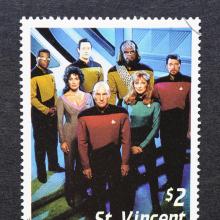
Image via catwalker/Shutterstock.com
The future for Roddenberry is not homogenous. Differences are embraced, not erased. Crews made up of different species, sexual orientations, genders, ages, and abilities each contribute in their own way to success of the ship’s mission.
The future envisioned by Star Trek is one of bringing more and more people into community, embracing difference, and proclaiming the entire society’s benefit to increased diversity. Star Trek, if we’re going to be blunt, is better known for what Christianity should be known for in our 21st century context
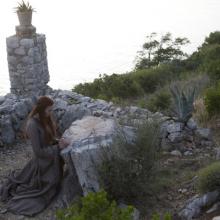
Image via Keith Bernstein/HBO/RNS
Game of Thrones, the engrossing, sometimes disturbing, always exciting TV series returns for a sixth season Sunday night on HBO. The network is not releasing screeners, so it’s anybody’s guess what’s going to happen. But one thing you can bet on — the television show, like the books by George R.R. Martin they are based on, involve storylines with religious elements. Considering where some of those stories left off, religion may come further to the fore in the new season. Here’s a primer on a few of the religions of Westeros, the imagined, medieval-inflected world of Game of Thrones.
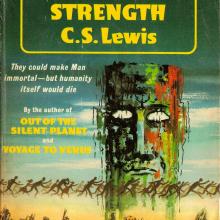
Image via John Keogh/Flickr
Lewis calls us to caution, to humility in the face of our quest for power. Just because we can does not mean we should. Even if you’re an optimistic transhumanist professor in England. That Hideous Strength is a devastating picture of that danger, more than fifty years ahead of its time.

Image via agsandrew/Shutterstock.com
As a lifelong reader of fantasy and science fiction, my favorite stories were those set not only in a different time but a different world altogether. It’s exciting to enter into a wholly new landscape, and, as avid readers of both genres will say, there’s both power and joy in watching people and creatures do battle with the same forces we recognize in our daily lives (including, possibly, the power to overcome real-world social divisions — despite decades of the science v. religion binary, there’s ample evidence that both sides love hobbits).
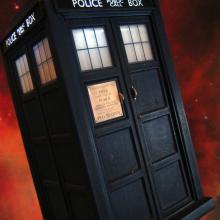
Image via Rooners Toy Photography/Flickr
No matter how charismatic, merciful (usually), or full of truly ancient wisdom the Doctor may be, he ultimately knows himself as less than God. It’s not likely that the Doctor believes in God, and he has particularly bad associations with Christmas, and he recognizes that he isn’t the Lord — he’s just a Time Lord. He forces Amy to face the fact that he cannot save her — that he is just a madman with a box, nothing more.
Series writers (which included Vince Gilligan of later Breaking Bad acclaim) were never exactly subtle with their nods to faith. While Mulder was an atheist, his constant journey to a truth larger than himself, and indeed, this world, mirror many a sojourner, albeit perhaps without the little green androgynous beings. And Scully’s faith as a child in the unquestionable Catholic Church, and then as a doctor in science above all, and then as a lover and a mother in a more tangible God, allowed for a deeper-than-average glimpse at the push-pull relationship between blind belief and pure, clinical reason.
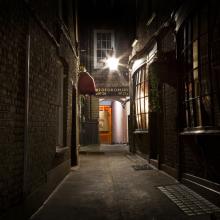
Image via chrisdorney/Shutterstock.com
But perhaps the reason why the darkness cannot understand or overcome the Light is because it will not and cannot imagine reducing itself or condescend to be like its enemy in order to overcome it. Scripture describes an adversary who wanted to be like God, but doesn’t seem to understand that God’s very nature is “gentle and humble and heart.” The nature of darkness is not a generous one. It doesn’t offer light or heat or allow other things to grow. It isolates.
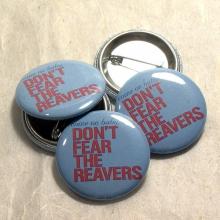
Image via Leonie/Flickr
Joss Whedon may not profess spiritual belief, but throughout his career, from Buffy the Vampire Slayer to Avengers and Agents of S.H.I.E.L.D., his work has fascinated believers. This may be, in part, because Whedon is a humanist, and his belief in respecting the dignity of all people is a common theme in his work. Whedon’s shows consistently emphasize compassion for people of all backgrounds and worldviews, even (especially) when his characters’ beliefs don’t match up.
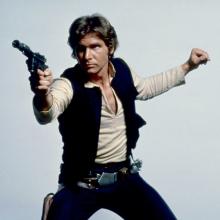
Image via Tom Simpson/Flickr
Han shooting first isn’t just a better story — it’s also a truer one. The Bible is full of stories of people being given honors and responsibilities they don’t think they deserve (and to our eyes, definitely don’t). It’s in God’s character to want more for people than they want for themselves. This shows up again and again in the ways God interacts with our world. And we are made in God’s image — when we see this kind of story told well, we respond to it. The original version of Star Wars tells this kind of story about Han Solo.
One of the great debates around Christmastime for Christians is whether to encourage or allow the belief in Santa Claus. I have friends and family on both sides of this debate, so I want to be careful here. I have a great deal of respect for the desire to keep the focus on Jesus and his birth at this time of year. I want to encourage that focus, too.
And, yet, I allow my children … I encourage them even … to believe in Santa.
We — my husband and I — don’t just stop there. We also have elves that visit our house every year during this season. Some would say that at best I am distracting from the message of Christ. At worst I am lying to my children.
The line between fantasy and falsehood is delightfully fuzzy during childhood. God created it to be this way and it is so important for a child to be able to play in this grey area.
It's been a fabulous few weeks for movies -- at theaters and at home. There are images in the great Russian director Andrei Tarkovsky's Solaris, recently released on Blu-ray and DVD, that are so beautiful they can evoke an aching longing for transcendent experience. This is entirely the point, for the film is about the search for meaning in a God-breathed universe. A man goes to space to investigate a mystery, discovers himself in the face of his loved ones, and ends in an embrace with the divine -- love itself. It's an astonishing work of art that repays multiple viewings, and serves as nothing less than an icon for worship. This summer's The Tree of Life, the fifth film in 40 years from the Christian humanist artist Terrence Malick, becomes something similar, and in the process makes excellent cinematic use of Brad Pitt and Sean Penn as avatars of contemporary masculinity. It's the most moving film I've seen this year.
After the synchroblog last week and all the discussions surrounding the question of if the emerging church is too white, I've had a number of interesting discussions regarding the ways in which the voice of the subjugated other (subaltern) finds a space



